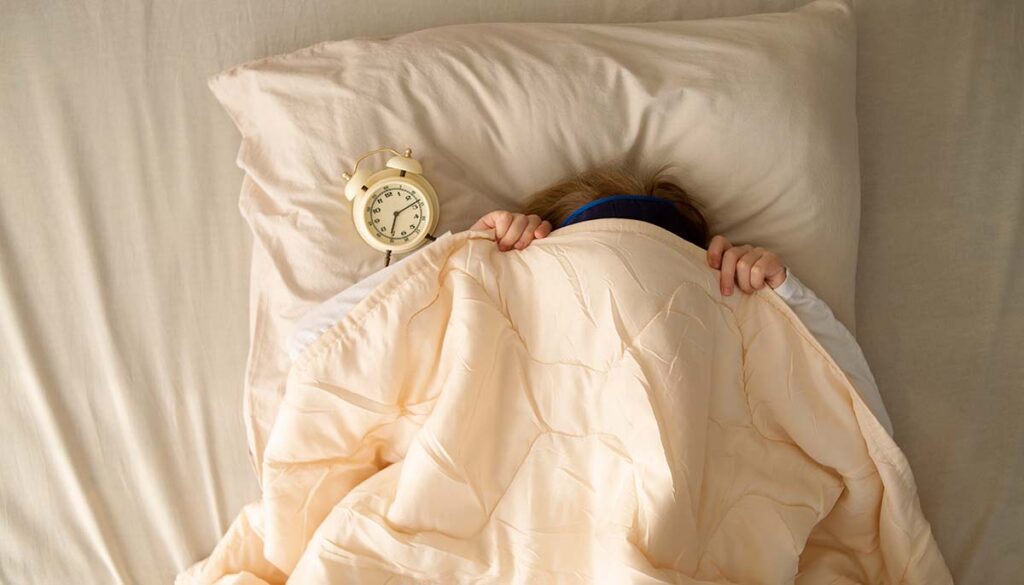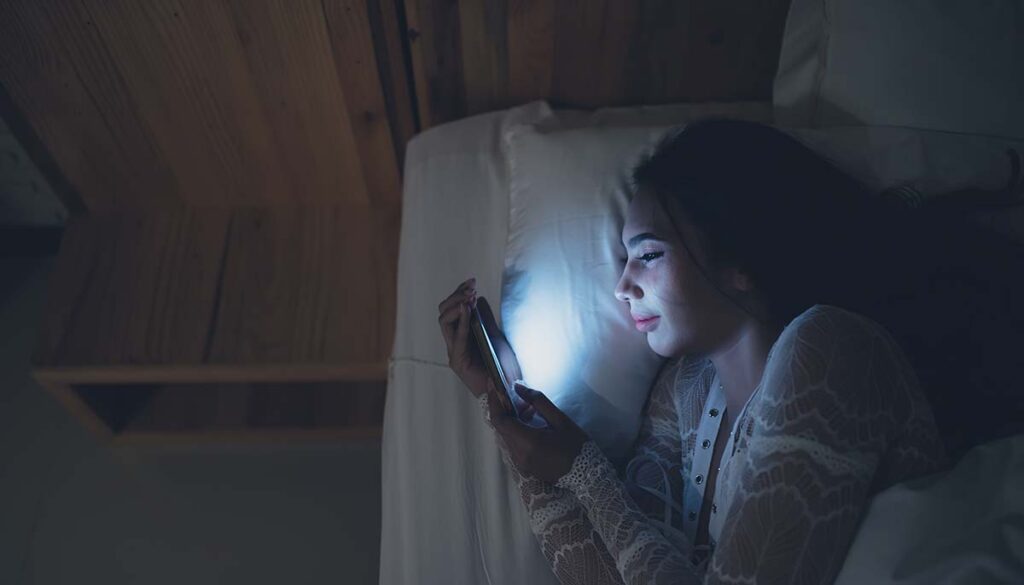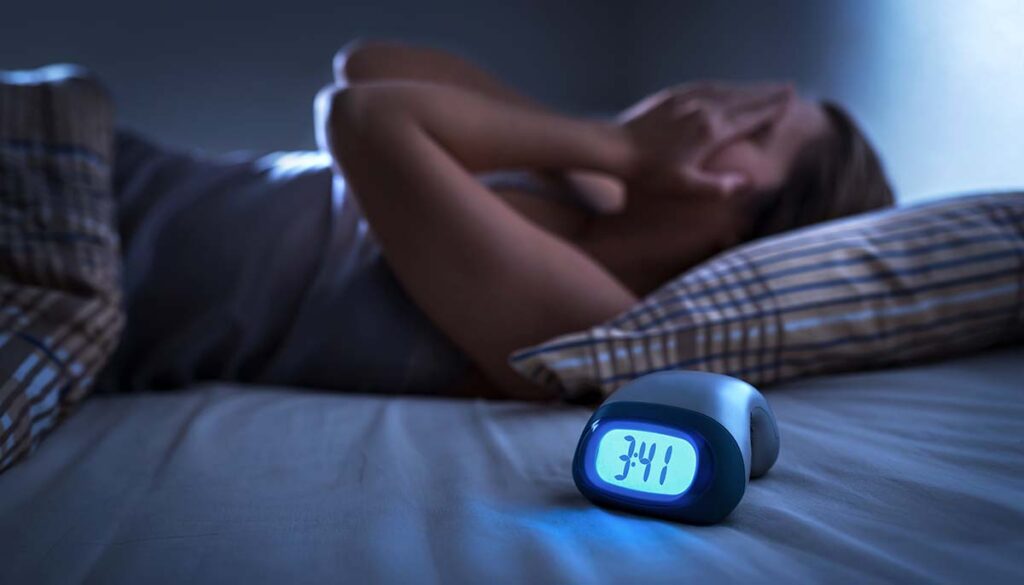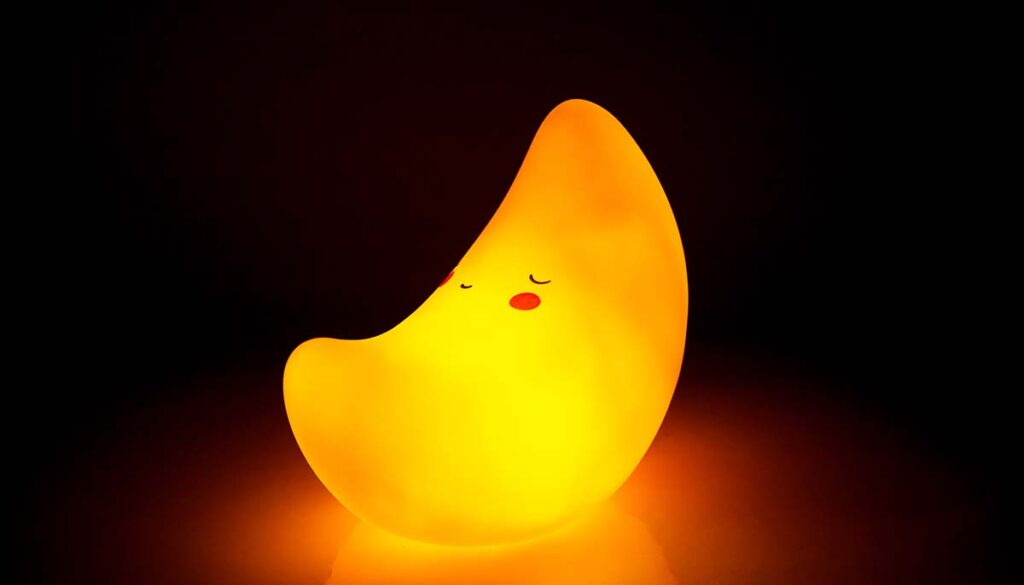Tired of tossing and turning? You’re not alone, friend. For many, poor sleep is a recurring nightmare. Luckily, the fix is often easier than anyone realizes in their sleep-deprived state.
If you’re suffering from lackluster sleep, it might be time to take an honest look in the mirror. More often than not, we’re the ones keeping ourselves up at night. We just don’t realize it. So if you’re serious about getting some much-needed shut-eye, it’s time to make sure you’re not making these common mistakes.
Sleeping During The Day
If you love taking daytime naps, don’t worry. Typically, a quick cat nap or a “power nap” is relaxing, re-energizing, and good for our overall health. But I’m talking 20, 30 minutes tops. Otherwise, taking lengthy daytime siestas can disrupt a proper night’s sleep in the worst ways.

If find yourself taking long, or multiple, naps throughout the day, you may very well be doing your REM cycle a huge disservice when bedtime finally rolls around. And because you’re sleeping poorly at night, you’re probably more prone to daytime tiredness. So if you’re ready to stop this poor sleep cycle, you may need to start by staying awake more often in the day. With that said, you don’t have to throw your beloved afternoon nap out the window. You just need to reign in your day-nap routine.
Try to only nap when you really feel like you need it. And keep it short. Otherwise, you run the risk of throwing off your body clock by starting something that you can’t possibly finish and then trying to go back to sleep hours later. If your nap is running longer than 20 or 30 minutes, you’ll likely wake up groggy as well. If you absolutely must nap, set an alarm with your future sleep in mind so you don’t oversleep in the day. And if possible, try to cut yourself off from napping beyond the late afternoon.
Staying in Bed When You Can’t Sleep at Night
According to various sleep experts, one of the most common mistakes people make is forcing themselves to stay in bed when they can’t seem to fall asleep. And if you think that staying in bed while you’re struggling will help you rest, the opposite tends to be true. Here’s why.

Because we’re well aware that we’re experiencing insomnia in our bed, our bodies tend to only grow more restless being in it. And if your bed becomes a space where you toss and turn all night, it’s likely not going to magically become the place you drift off to dreamland. So if you want to doze off and you can’t seem to relax in your bed, the first step might be doing something else, somewhere else.
Sleep experts say to find a mindless or meditative task. Read a book. Fold the laundry. Drink some sleepy time tea. Or, just go sit in another space and breathe deeply. The idea is to give your brain and body a reset. You’ll likely begin to feel tired much sooner than you were going to in the space you associate with tossing and turning. Once you feel your eyes getting heavy, go back to bed. Whatever you do before, during, and after your “reset” time, stay away from screens.
Disregarding Your Bedtime Routine (or Not Having One at All)
Humans are creatures of habit. In turn, not sticking to a bedtime routine is by far one of the most classic, common sleep mistakes around; not having a consistent, quality bedtime routine can ruin sleep consistently. Look to your pre-sleep ritual. Do you stick to it nightly? And if you don’t have one, there’s no time like the present. A proper pre-sleep ritual often makes all the difference. Here’s the primary logic, according to sleep doctors everywhere. Not to mention, those who swear by their bedtime routine.
Our circadian rhythms are there to regulate our sleep cycles. The more consistent our bedtime routine, the sharper our circadian rhythms can be. By doing certain steps before bed each night, our brain begins to associate our nighttime routine with bedtime more naturally.

We all have our own bedtime rituals. Since we all unwind differently, bedtime routines can vary greatly from one person to the next. And since there’s no foolproof set of steps for all, you’ll need to do some experimenting to figure out what works best for you. With all of that said, no matter how you wind down, there are certain things that should never be a part of your bedtime routine. I’m talking about screens. Avoid laptops, phones, tablets, etc. at all costs.
Also, try to stick to a similar bedtime and wake-up time. Some people are able to play with when they go to bed and get up. However, most people cannot and require a certain amount of sleep to properly function. The problem is, those very same people aren’t aware that what’s probably keeping them from sleeping soundly is that they lack a structured pre-sleep routine with an established bedtime. So whether it’s the week or the weekend, help your body clock build the strongest wake-sleep cycle it possibly can by creating and sticking to a bedtime routine.
Stressing Out About Your Lack of ZZZ’s
Sometimes, the best thing to do when you can’t sleep is to accept it. The more you stress, the more interruptive to deep sleep that stress can be. By accepting that tonight you may just not sleep well, your body and mind will both be free to more easily relax.
Obviously, this solution won’t make up for lost sleep. But it may benefit you moving forward. Sleep studies suggest that the more we stress about missing sleep, the less likely we are to sleep better the following night. In other words, when you prepare for the worst sleep, it’s often more likely to come. If you accept that maybe you’re in for a night of tossing and turning, sleep might find you sooner.

When we can’t go to sleep or stay asleep, our anxiety levels rise. This, of course, only triggers more sleep disruptions within us. Every time we wake up or look at the clock, we think about the sleep we are losing. Making matters worse, sleep experts have noted that those who sleep poorly often aren’t aware of when they’re awake or asleep, present company included.
One thing I do when I’m having an off night is making a conscious effort to relax, rather than “trying” to sleep. I tell myself that good will come from relaxing, even if I’m unable to fall asleep. The better I feel about relaxing, the less worried I am about missing out on rest. Once I accept the situation for what it is and devote my energy to relaxing, I find that I always sleep better, no matter how brief on occasion.
Bad Bedtime Lighting
Every night, it’s important to use what the sleep experts like to call “sleep-friendly lighting.” It’s simple: good lighting promotes good sleep. And the wrong lighting can wake you up repeatedly.

It might sound strange, but sleep experts believe that red is the absolute best-colored light for sleep. You may not be able to stop yourself from waking up, but unlike blue and green lights, a red light will not interrupt your circadian rhythm.
So, if you’re into nightlights or thinking about getting one, invest in a red light bulb and see what happens.
Poor Sleep Environment
Our environment plays a major role in the quality of our sleep. Your bedroom should be a sanctuary. More specifically, it should be quiet, dark, and above all else, comfortable. The temperature, sheets, mattress, pillows, blankets, and lighting should all be comfortable. And while having a TV in your bedroom might sound like the epitome of comfort, it’s often one of the biggest obstacles to a good night’s sleep.

Some people watch TV when they’re not ready to go to bed. Others claim it helps them fall asleep. But the reality is, TV can stimulate you whether you want it to or not. Like all devices, the lights send “wake up and stay up” signals to your brain. And on top of being a consistent distraction, you’re conditioning yourself to associate your sanctuary with activities that are anti-rest. Not to mention, those who fall asleep with the TV are typically woken up by it later. And some of us troubled sleepers can still hear the TV in our sleep, which makes for interesting “dreams,” but not very deep sleep.
So not to be the bearer of bad news, but if you’re serious about developing good sleeping habits, it might be time to take the television out of the bedroom once and for all.
Your Mood Before Bed
There are many reasons going to bed angry or anxious is a bad idea. For starters, it activates our fight-or-flight response, making us more alert. And it’s pretty hard to become tired when we’re wound up by adrenaline, intrusive thoughts, or unsettled issues.
Bad moods before bed happen to the best of us, but don’t let your agitation interrupt the most important part of your night. With that said, If you can’t resolve the problem before bed, that’s okay. Oftentimes, no matter how upset, anxious, or plagued by something I am, I will always wake up in a better mood the next morning. And it helps to remind myself of that when I’m struggling to fall asleep.

Good sleep comes from going to bed in a good place. You can set up a cozy environment and have a rock-solid bedtime routine, but if you’re in a funk before you turn in, you’ll likely go to bed restless and wake up groggy. If you’re simply not okay with going to bed in a bad mood, there are some things you can do to flip the sleepy time script.
Attempt to calm your system before bedtime. You need to get out of your head and allow the rest of you to relax. Go for a walk or take a relaxing bath. Focus your attention on your breathing. Here are some natural relaxation techniques to get you started. And remember, whatever is bothering you right now, it’ll probably bother you less in the morning.













